How to say Thank You in Chinese (in 23 Different Ways)
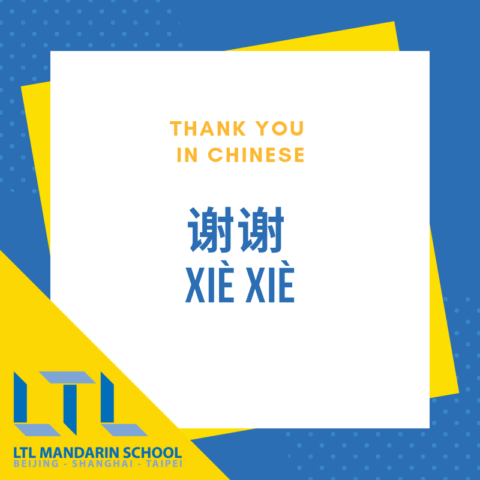
Do you know how to say Thank You in Chinese?
👉 If not, the simple answer is 谢谢 – Xiè Xiè, but there’s a lot more to it than that… stick with us.
Today we want to dig a little deeper than the obvious.
Rather than just going with the usual 谢谢, why not broaden your horizons a little and learn some alternate ways to thank your Chinese friends?
So, today we discuss 23 alternate ways to express your gratitude in Mandarin!
Thank You in Chinese – How do you Say Thank You in Chinese?
Thank You in Chinese – Alternate Ways to Say Thank You in Chinese
Thank You in Chinese – Specific Thank You’s in Chinese
Thank You in Chinese – Expressing Gratitude in Chinese
Thank You in Chinese – Replying to Thank You in Chinese
It’s great to understand different ways to thank someone, there are always different contexts, formal or informal, friends or the first time meeting someone.
We say thanks, but we also say you are welcome or don’t mention it. So why not do the same in Chinese?
Oh, by the way, one of the first things to learn when taking up Mandarin is the tones, we’ve got a super quick, super useful guide for you here…
OK then time to jump in. Let’s start with the basics
How do you Say Thank You in Chinese?

Nice and simple and one you can use in pretty much any situation whether at a supermarket, in a taxi, with friends who just got you a drink…
谢谢 – Xiè Xiè
We can tweak this slightly also with the following:
- 多谢 – Duō Xiè (thanks a lot)
- 感谢 – Gǎn Xiè (many thanks)
- 非常感谢你 – Fēi Cháng Gǎn Xiè Nǐ (thank you very much)
The latter of the three 非常感谢你 would generally only be used when wanting to give sheer gratitude to someone for something they have done for you.
The first two 多谢 and 感谢 can be used in informal situations between friends, family and colleagues, but are a level up from the standard 谢谢.
If you want to address a group of people who have helped you out you’ll want to add a simple 大家 after thank you which would translate to thank you everyone.
谢谢大家 Xiè Xiè Dà Jiā – Thank you everyone
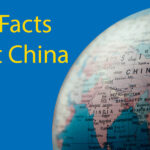
Prepare to be Shocked: 100 Mind-Blowing Facts About China You Won’t Believe! 😲
Discover these insane facts ⭐️ 100 facts about China that will amaze you from number of people to landmass and much more.
Alternate Ways to Say Thank You in Chinese
These all follow a similar pattern and are some of the more common ways to say thanks in Chinese:
-
谢谢你
Xiè Xiè Nǐ
- Thank you (the 你 emphasizing the ‘you’)
-
谢谢您
Xiè Xiè Nín
- Thank you, but formal
-
谢了
Xiè Le
- Thanks, but casual and used between friends
It’s all much of a muchness and convey pretty much what you want to get across so don’t stress about which one should you pick for each situation too much.
Specific Thank You’s in Chinese
How do you Say Thank You For Your Help in Chinese?
谢谢你的帮忙 xiè xiè nǐ de bāng máng – Thank you for your help
The translation is nice and easy here as the structure is the same as the sentence in English:
- 谢谢 – Thanks
- 你的 – Your
- 帮忙 – Help
Simple!
How do you Say Thank You For Your Love in Chinese?
谢谢你的爱 xiè xiè nǐ de ài – Thank you for your love

Notice the difference from the example above?
Pretty simple right.
The structure remains the same, we just replace help with love.
Therefore you can apply this logic and replace the final word with whatever you wish.
So using this structure, if we want to say thank you for your attention, we just remove the word for love, and replace it with attention 关注。
谢谢你的关注 – thank you for your attention
and once more…
Thank you for your patience. The word for patience is 耐心… so
谢谢你的耐心 – thank you for your patience

37 Ways To Say I Love You In Chinese // The Ultimate Guide
I Love You In Chinese. Rather than just give you the translation, we are going one step further and give a guide to some excellent alternatives.
Expressing Gratitude in Chinese
So we’ve learnt some basic thank you’s in Chinese.
Time to crank it up a notch.
If someone has said some especially nice things about you and you want to express your gratitude towards them, what can you say?
How do you Say You’re Too Kind in Chinese?
This is a cool one to learn because unlike the other examples there’s no real literal translation (in theory actually there is but it means where, where)
Likewise, if you put this into Google Translate here’s what you’ll get:

So despite the literal meaning of the phrase 哪里哪里 Nǎlǐ nǎlǐ actually means “you’re too kind”.
This is commonly used if someone has complimented you, let’s say on your handsome looks.
You can reply with a simple 哪里哪里 Nǎlǐ nǎlǐ.
How do you Say Thank You for Your Kind Words in Chinese?
感谢您的赞美之词 Gǎnxiè nín de zànměi zhī cí
Notice we don’t start the sentence with the commonly used 谢谢. As we want to express sincere gratitude, we use 感谢 and您 (the more formal way to address someone).
From then on it’s fairly simple again as we use the word to praise and your words.
How do you Say Thank You for Coming Today in Chinese?

感谢您今天的光临 Gǎnxiè nín jīntiān de guānglín
A great way to thank someone for coming to your workplace/home for a specific event.
光临 is a word you’ll probably see and hear all over China, and perhaps you don’t realise it, but you will hear this most days of the week too.
When entering a convenience store, supermarket, or even a bar or restaurant you’ll normally be greeted by the staff saying:
欢迎光临 Huānyíng guānglín – this simply means welcome to…
In our message of thanks here we are expressing sheer gratitude for the person, today, honouring us with their presence.
That’s pretty much the literal translation!
How do I Thank My Teacher in Chinese?

A great one for all you LTL students currently studying in one of our schools… or for anyone currently learning Chinese elsewhere.
像您这样的老师不容易找到 Xiàng nín zhèyàng de lǎoshī bù róngyì zhǎodào.
This translates to – teachers like you are not easy to find.
This is probably one of the higher forms of compliment you could wish to give your teacher.
Learn it, use it and you’ll be in their good books that’s for sure.
Another very tidy compliment you can pay your teacher would be:
您是有史以来最好的老师 Nín shì yǒushǐ yǐlái zuì hǎo de lǎoshī
YOU ARE THE BEST TEACHER EVER – now that’s always something our teachers, or any teacher for that matter, would love to hear!
TOP TIP – there’s a really useful Chengyu
How do you Say Thank You for the Gift in Chinese?
It’s Christmas, or your birthday, or someone is just feeling generous. Maybe it’s Chinese New Year… either way, you’ve received a lovely gift and you want to express your thanks, but going beyond the usual means.
谢谢你的礼物 Xièxie nǐ de lǐwù – Thank you for the gift/present
Literally this translates to – Thanks Your Gift.
Nice and easy once again!
FYI, if it’s someone else’s birthday, be sure to follow this must-see guide on giving gifts to Chinese people.
Replying to Thank You in Chinese
So let’s say you are on the other side of the table. This time someone is thanking you for something you’ve done – nice work!
That said, it’d be a bit embarrassing if you didn’t know how to reply to them!
So, here are some ways to reply to thank you in Chinese.
How do you Say You Are Welcome in Chinese?

One of the first phrases you’ll learn in Chinese is:
不客气 bù kè qì – You are welcome
The literal translation to this is a bit more awkward in English:
- Don’t – be – polite
It’s probably the most used way to reply to Thank You in Chinese.
Remember it!
TOP TIP – to level-up you can add in a character to this. The meaning remains the same but the extra character might just give you a bit more street cred with the locals – 不用客气 bù yòng kè qì
How do you Say It’s Nothing in Chinese?
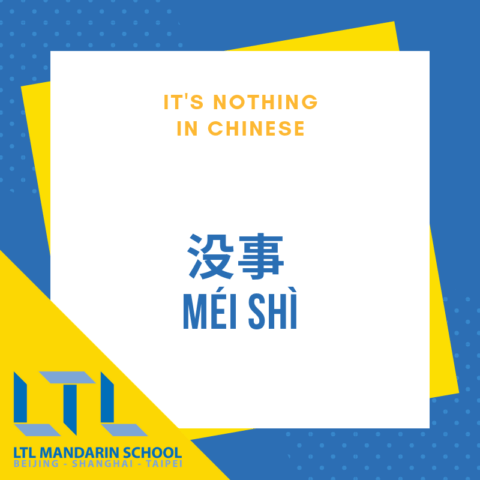
没事 méi shì – It’s nothing
Short and snappy. You hold the door open for someone, they thank you, you can hit them with a 没事.
Note in the north of China – Beijing mainly – you’ll hear the harsher ‘ER’ sound on the end of this to make 没事儿 .
If you are based up north, watch out for those ER’s! They appear on the end of many words to give the northerners that pirate like sound for many words such as:
| 上班儿 | Shàngbān er | To start work |
| 聊天儿 | Liáotiān er | To chat |
| 玩儿 | Wán er | To play |
NOTE – All these words mean the same without the 儿, it’s simply a regional (Beijing) thing.
How do you Say No Problem in Chinese?
没问题 Méi wèntí – No problem
Again, super common and super easy.
The good thing about 没问题 is there’ll be no harsh ER sound on the end you have to worry about!

8 Killer Language Learning Tips 📣 You Should Know
LTL’s 8 Language Learning Tips + BONUS Video and Podcast What language learning tips have you heard? But really? Is it possible to learn thousands of these? Yes, it is!! • Speak every day?• Learn grammar first?• Learn the characters?…
One final bonus reply to thank you is this one:
小事一桩 Xiǎoshì yī zhuāng
This, you’ll find it much rarely used compared to the aforementioned, but it’s another cool level-up one to remember.
TAKE NOTE – this is much more informal and shouldn’t be used in formal situations, such as with your boss at work. Keep it between friends and family
Fancy testing yourself with a new language? Why not learn how to say thank you in Vietnamese, thank you in Korean or thank you in Japanese
Thank You in Chinese – FAQ’s
How do you say Thank You in Chinese?
Thank you in Chinese is 谢谢 – Xiè Xiè.
How do you say I Love You in Chinese?
I love you in Chinese is 我爱你 – Wǒ ài nǐ.
How do you say No Problem in Chinese?
No problem in Chinese is 没问题 Méi wèntí.
What does 哪里哪里 mean?
So despite the literal meaning of the phrase 哪里哪里 Nǎlǐ nǎlǐ actually means “you’re too kind”.
This is commonly used if someone has complimented you, let’s say on your handsome looks. Oddly enough literally this translates to where is it!
What is a common reply to Thank You in Chinese?
One of the most common replies in Chinese is 不客气 bù kè qì which means you are welcome. The literal translation is don’t be polite.
Is there a formal way of saying Thank You in Chinese?
Thanking someone formally in Chinese is very similar to the informal version. The only difference is you add an N to Ni, which becomes 谢谢您 Xiè Xiè Nín
Want more from LTL?
If you wish to hear more from LTL Mandarin School why not join our mailing list?
We give plenty of handy information on learning Chinese, useful apps to learn the language and everything going on at our LTL schools.
Sign up below and become part of our ever-growing community.
BONUS | Learn Chinese with LTL in person. Our student community is growing by the week.

 Hi, my name is Ilaria! I am from Italy and I am a Student Advisor at LTL. Fancy coming to study with us in China? Drop me a message.
Hi, my name is Ilaria! I am from Italy and I am a Student Advisor at LTL. Fancy coming to study with us in China? Drop me a message.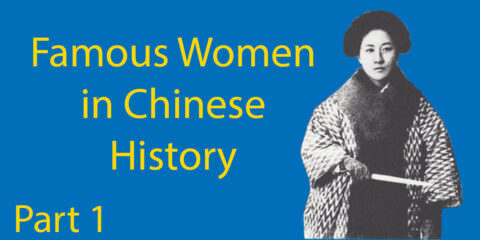


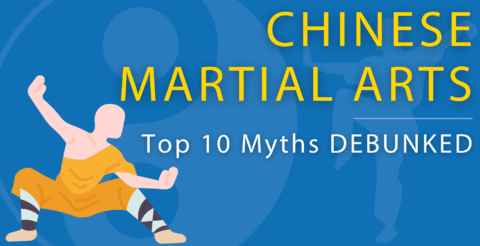


7 comments
Thank you for your series of blog posts. Very useful tips indeed! I look forward to reading them each day.
非常感谢 你们 有用优秀 的 博客文章!我 期待 每天 阅读。
Glad you enjoy them Kien! We'll keep them coming no doubt about that!
LTL
Thanks Kien!!
[…] Thank You In Chinese. Thank You In Chinese Is Its Great To Understand Different Ways To Thank Someone There Are Always Different Contexts Formal Or Informal Etc. ltl-beijing.com […]
[…] goodbye to pleases and thank you’s, goodbye to queuing in line, and goodbye to beating around the bush. The people of Beijing are loud […]
多谢!
不用谢 Jack